Obama's 'core coalition' won't defeat ISIS 'monster' without Mideast nations
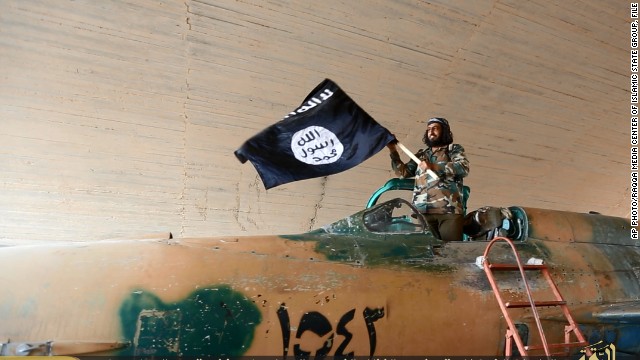 A 10-nation group the Obama administration has gathered to fight
ISIS could help, but more important will be the nations that surround
the Islamist militant group's self-declared "caliphate," experts say.
A 10-nation group the Obama administration has gathered to fight
ISIS could help, but more important will be the nations that surround
the Islamist militant group's self-declared "caliphate," experts say.
After meetings at last
week's NATO Summit, U.S. Defense Secretary Chuck Hagel spoke of a newly
formed "core coalition." President Barack Obama said it would take on ISIS.
The nations are Australia, Britain, Canada, Denmark, France, Germany,
Italy, Poland and Turkey, in addition to the United States.
Turkey, a NATO member, is
the only nation in that group located close to ISIS, which is also
known as ISIL and calls itself the Islamic State. It has taken over
parts of Iraq and Syria.
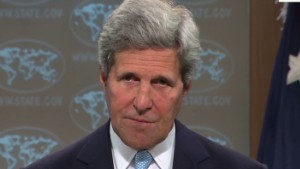
Kerry: Countries have a role against ISIS
This month the United
States plans to ask the U.N. Security Council to support a resolution
aimed at cracking down on foreign fighters in ISIS, a U.S. official
said. And U.S. Secretary of State John Kerry says he'll be heading to
the Middle East on Tuesday to work on building a broader coalition to
defeat the Islamist group.
The key to winning the battle against ISIS, analysts say, could be courting countries in the region.
"The most important
element of this coalition is the local and the regional," said Fawaz
Gerges, chairman of Middle Eastern studies at the London School of
Economics.
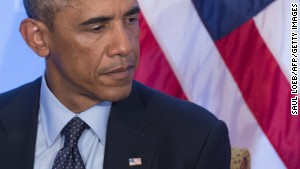
W.H.: Obama has authority to act on ISIS
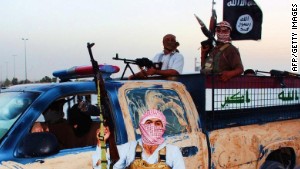
Has ISIS silenced the Middle East?
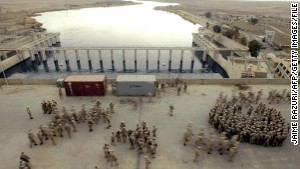
U.S. strikes ISIS near key dam
"The U.S. and allies won't put boots on the ground. ... The Iraqis, Kurds, and Syrians will basically be doing the fighting."
Analyst: Stop ISIS' 'social oxygen'
Defeating the group known
for horrific acts of terror -- seizing towns, slaughtering civilians,
beheading many people including journalists -- will demand much more
than military action, said Gerges. "The most important element is to
deny ISIS its social oxygen."
ISIS has blended in with local communities "to portray itself as defender," he said.
Members of the persecuted Yazidi community in Iraq told CNN that after ISIS came into town, Arab neighbors turned on the minorities and helped ISIS kill.
Stopping ISIS means
convincing Sunni Arabs -- who have felt disaffected by the Iraqi
government -- that ISIS is an enemy. The goal is to "drive a wedge
between local Sunni communities and ISIS," Gerges said.
To that end, Saudi
Arabia and Jordan, which are Sunni states, can play a critical role,
Gerges said. They're home to many Sunnis, including former Iraqi
military officers who fled after the U.S. invasion in 2003. "I bet you
U.S., Saudi and Jordanian officials are working 24 hours a day to try to
convince these leaders to join their alliance, and to in turn convince
their counterparts to stand up against the Islamic State."
Analysts: It's up to the Saudis
"Saudi Arabia is the only authority in the region with the power and legitimacy to bring ISIS down," two analysts write in The New York Times.
The Middle East is characterized by a welter of conflicting fault lines and interests.
Stephen Biddle, political science professor, George Washington University
Stephen Biddle, political science professor, George Washington University
The country "effectively
eradicated al Qaeda in the kingdom," write Nawaf Obaid of Harvard's
Belfer Center and Saud al-Sarhan of the King Faisal Center for Research
and Islamic Studies. It also "has a unique form of religious credibility
and legitimacy," since Saudi Arabia is the epicenter of Islam.
Having Saudi Arabia "in
the lead can only add to the legitimacy of the campaign against ISIL,"
said Dennis Ross, a former U.S. ambassador who is now with the
Washington Institute for Near East Policy. "The Arab states in this
campaign must also provide military support -- involving forces, arms,
training, subsidies for the tribes, intelligence, and diplomatic and
even religious efforts to discredit ISIL."
Analyst: How to bring in Iran
These efforts could
bring about an alignment between Saudi Arabia and Iran in fighting the
militants, said Stephen Biddle, a political science professor at George
Washington University.
"The Middle East is
characterized by a welter of conflicting fault lines and interests," he
said. When Muslim nations have aligned along Sunni and Shia lines, Saudi
Arabia and Iran moved further apart, "and in fact waged a proxy war
against each other." Now, Biddle said, new fault lines pit radical
groups against authoritarian governments threatened by them -- and on
that, the two nations could come together.
Trita Parsi, president
of the National Iranian American Council, believes Iran is even better
equipped to fight ISIS than Saudi Arabia is.
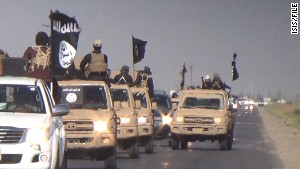
On GPS: Is ISIS a threat to the U.S.?
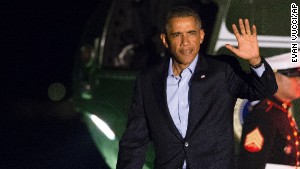
Dems: Obama too cautious on Isis
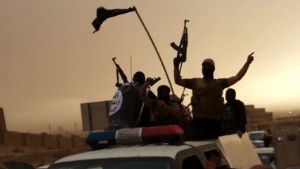
Intel chair: ISIS a 'major threat' to U.S.
"The Iranians have far
more battle experience, particularly with asymmetric warfare, as well as
fighting against guerrilla forces," he said.
But Michael Rubin of the American Enterprise Institute cautions against the U.S. coordinating with Iran.
"Some diplomats might
say because the United States and Iran have a mutual interest in seeing
ISIS defeated, we should work together. That's like saying because
arsonists and firefighters both have an interest in fires, they should
work together," Rubin says. "Iran seeks not to defeat terrorism, but
swap one flavor for another."
Iran's and Syria's
regimes are close, so Iranian involvement would create the "awkward
political problem of what you do with Syrian President Bashar al-Assad,"
says Biddle. "This is not unlike the problem of politics generally.
When you build coalitions, not everybody likes every policy."
Analyst: Syria let ISIS grow
The dire situation reflects a success of al-Assad's regime, some analysts say.
"The Syrian regime,
backed by Iran, allowed ISIS to proliferate so that they could present
the U.S. and Europe with a 'devil you know' choice" -- pushing against
U.S. calls for al-Assad's ouster amid the nation's bloody civil war,
argues Rebecca Abou-Chedid of the Truman Project.
"Each of the actors in
the region has some kind of responsibility for the position we are in
now," she adds. "Ironically, each of those players, Iran included, is
looking to the U.S. to fight the monster they created."
Obama's "core coalition"
may be torn over just what role Syria should play in fighting ISIS,
said Justin Logan of the Cato Institute. "The Gulf Arabs would like very
much for Assad to fall, but U.S. airstrikes on his most militarily
significant enemy aren't going to help that end. So there's going to be a
lot of disagreement about what to do with that problem."
The Syrian regime, backed by Iran, allowed ISIS to proliferate so
that they could present the U.S. and Europe with a 'devil you know'
choice.
Rebecca Abou-Chedid, Fellow, Truman Project
Rebecca Abou-Chedid, Fellow, Truman Project
Given U.S. tensions with
both Iraq and Syria, incorporating them into a joint effort against
ISIS will be "very complicated diplomatically," notes Christopher
Chivvis of Rand Corporation. "The United States is extremely unlikely to
cooperate directly with the Assad regime or Iran at this juncture."
The focus, Chivvis said,
will be on working with the Peshmerga -- Kurdish forces in northern
Iraq -- and with Iraq's own security forces.
Analyst: Plan for post-ISIS
Obama has repeatedly
called on the Iraqi government to build an inclusive government that
brings together Sunnis, Shiites, and Kurds.
Whether the government
does so will be a critical factor in determining whether the country
stands up to ISIS and other militants looking to seize power.
It's also important to
think ahead to what happens if ISIS is defeated, said Abou-Chedid. "Once
ISIS is gone, what will local governance look like in these areas? How
will federal governments reassert their presence?"
While ending ISIS' reign
of terror is an immediate concern, a long series of problems with
Islamist groups in the Middle East and North Africa stemmed from
political vacuums in which extremists grabbed power. For governments to
succeed after ISIS, particularly in Iraq, they'll have to include people
in areas freed from ISIS' grip.
"If the Iraqi government
remains dominated by Shia politicians and if Syria remains a failed
state," said Abou-Chedid, "this will be impossible."










0 comments:
Post a Comment